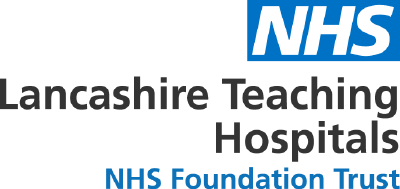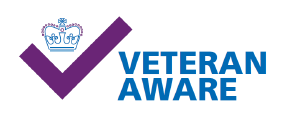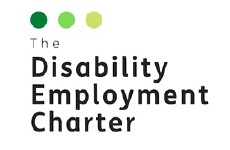Job summary
- Main area
- Diabetes
- Grade
- Band 7
- Contract
- Permanent
- Hours
- Full time - 28.5 hours per week
- Job ref
- 438-PB2482
- Employer
- Lancashire Teaching Hospitals NHS Foundation Trust
- Employer type
- NHS
- Site
- Chorley district Hospital
- Town
- Chorley
- Salary
- ÂŁ46,148 - ÂŁ52,809 per annum, pro rata
- Salary period
- Yearly
- Closing
- 09/01/2025 23:59
- Interview date
- 20/01/2025
Employer heading

Clinical Nurse Specialist - Diabetes
Band 7
Job overview
An exciting opportunity has arisen for an enthusiastic Clinical Specialist Practitioner for the Diabetes Specialist Nurse Team at Lancashire Teaching Hospitals NHS Foundation Trust.
You will work closely with the Diabetes and Endocrine Consultants and the Diabetes Nursing Team.
You will work closely with the Diabetes and Endocrinology Team. You will act as an expert resource and senior clinical nursing lead providing leadership and consultancy alongside the Diabetes and Endocrinology Clinical Directors, the Consultant Team and Diabetes and Endocrine Nurse Specialists to develop and implement best practice in the management of patients in accordance with local and national policies. You will be utilising advanced skills and knowledge to assess, manage and treat patients.
You will follow Trust and speciality guidelines and will work alongside the registrar and consultant colleagues. The role may involve attending and providing urgent advice in Medical Assessment Unit or A&E department for some acute conditions. You will be linking the Diabetes and Endocrinology Teams across secondary care, have close communications with community and primary care in the pursuit of the ultimate patient journey and experience. The role is also focused on developing and participate in the insulin pump service.
Main duties of the job
You will provide specialist diabetic knowledge and training to both nursing teams and medics. You will be expected to be an independent prescriber or work towards independent prescribing and will have involvement in out-patient clinics and in-patient care.
You will also be involved in education and professional development of the diabetes and general nursing teams, contributing to the delivery of educational programmes, delivered by the organisation and outside providers as appropriate. You will lead on practice and service development through the application of research and evaluation within the specialism
The hospital complies with the European Working Time Directive and offers an excellent Postgraduate Medical Centre and library. You will be part of the Diabetes team and will assist in the training and development of other members of staff within the role, as required.
You will be given the opportunity to gain experience in all aspects of Diabetic Medicine with encouragement for personal and professional development.
You will be expected to have an in-depth knowledge of all aspects of Diabetic Medicine.
You will be given the opportunity to undertake further personal and professional development.
Working for our organisation
We have 10000 fantastic people working hard to deliver quality services to our patients. Whatever your role, you help look after 370,000 people in our local area & give specialist care to 1.5 million people across Lancashire & Cumbria.
Working with us gives you the knowledge and sense of pride that every activity you do genuinely does make a difference to support our patients & staff, ensuring we keep thriving & delivering outstanding healthcare right across our local towns.
You’ll have access to varied development opportunities, learn new skills, meet fab people & do things you’d never have done. You’ll learn about working in a hospital, interacting with people from all different roles to build skills & enhance your career path.
You’ll make an impact, be challenged to think differently, be bold & help innovate to keep improving things. Everything we do centres around patient care which means your role is pivotal and something really to be proud of.
Detailed job description and main responsibilities
· Being highly involved in the Insulin pump service and been able to work collaboratively with the wider MDT
· To be professionally and legally responsible and accountable for all aspects of own work by providing expert care for a complex caseload of patients.
· To accept clinical responsibility for a diverse and often complex caseload of patients and to organise this efficiently and effectively with regard to clinical priorities and use of time.
· To receive and make referrals to healthcare professionals review the patient and act according to current legislation to undertake independent prescribing and also make appropriate use of the administration of medication
· Work with stakeholders to develop and implement local guidelines, promoting evidence-based practice
· To work effectively with people to identify their concerns about health and wellbeing
· Work in partnership to plan and develop various approaches for health promotion.
· Work closely with members of the public and users of the service so that health and wellbeing can be promoted effectively.
· Explain assessment processes clearly including the benefits and risks of the assessment and any alternative approaches obtaining their consent whilst respecting their dignity, wishes and beliefs.
· To undertake the comprehensive highly specialist assessment of patients, including those with a complex presentation, using investigative and analytical skills. The post holder will undertake first line assessment of patients.
· Follow a process of reasoning which demonstrates and enhances capacity for problem solving and critical decision making.
· Interpret all the available information and makes a justifiable assessment
· Identify service shortfalls in the effective management of people with diabetes and work with local commissioning bodies to address them.
· Identify and review current information/factors to determine and plan the assessment process.
· Undertake assessment in line with evidence-based practice, legislation policies and procedures, e.g. taking case history and requesting diagnostic investigations.
· Review and interpret all information available utilising a systematic process of reasoning to make a differential diagnosis.
· Develop and record a treatment plan consistent with the outcome of assessment and the most probable diagnosis.
· Practice at an advanced level and to use an extended scope of practice beyond own profession for example the initiation and management of treatment plans, responding to changes and manipulation of management plans.
· Identifies appropriate interventions/treatments to be undertaken within the context of the overall treatment plan
· Undertakes intervention/treatments in a manner that is consistent with evidence-based practice. Clinical guidelines applying own skills, knowledge and experience and using considered judgement to meet individuals’ complex needs.
· Provide expert advice on complex cases and multiple pathologies.
· Evaluates the effectiveness of interventions/treatments and makes any necessary modification.
· Maintains accurate and legible patient notes (written and electronic) in accordance with Trust and national professional polices and guidelines.
· Participate in innovation and change concerned with improving the standards of care for patients
· Influence and develop policy and clinical guidelines internally and externally
· Participate in clinical audit with respect to evaluating service effectiveness and future developments within the role.
· Initiate and lead/support research projects
· Incorporates professional/legal standards into advanced clinical practice.
· Assumes accountability for practice and strives to attain the highest standards of practice.
· Engages in clinical supervision and self-evaluation and uses this to improve care and practice.
· Collaborates and/or consults with members of the health care team about variations in health outcomes.
· Monitors quality of own practice and participates in continuous quality improvement.
· Actively seeks and participates in peer review of own practice.
· Evaluates any patient incident or theatre cancellation to review and determine any changes required to patient pathway
· To analyse and interpret highly complex information gained during clinical examination and history taking to diagnose an individual’s problem or illness and decide on an appropriate course of action or treatment.
· To identify and agree the appropriate data to be collected by self and others within the team.
· Effectively use the agreed systems/methods for obtaining data collection.
· To collate and analyse the information obtained using the appropriate methods.
· To report in a timely manner the data information obtained.
· Supports the team in collating and analysing the information obtained in relation to their area of responsibility and encourages timely reports of the data and information obtained. Monitors current evidence-based literature in order to improve quality care.
· To act as a role model ensuring own actions promote quality and identify and manage any risks.
· To keep up to date and act consistently with quality standards and guidelines within their own clinical areas and associated areas.
· Develops guidelines and disseminates to the appropriate staff to ensure quality of patient care is constantly improved.
· To alert others to new developments and lead them in understanding how their practice should change to improve quality.
· To assess and monitor the quality of work in own area
· To raise quality issues and related risks with relevant people and follow this up and address poor performance as per Trust policy, e.g. complaints, incidents, poor communication.
· To inform and influence clinical governance issues
· To lead in the promotion and implementation of evidence-based care ensuring that good practice is disseminated locally, regionally and nationally.
· To undertake the measurement and evaluation of your work and current practices using evidence-based practice projects, audit and outcome measures and lead others in doing so. Make recommendations for, and lead change.
· To keep up to date with developments within own specialised field, disseminate information and ensure that practice is based on best available evidence.
· To demonstrate involvement in a utilisation of critically appraised research.
· Facilitates the process of audit within the Emergency department and Trust wide practice.
· Communicates effectively with a wide range of people in a manner consistent with their level of understanding, culture and background and preferred ways of understanding. Communication skills of persuasion, motivation, explanation and gaining informed consent will be used with a wide variety of patients. Barriers of effective communication will regularly be evident, e.g. altered conscious level, sensory loss, altered perception, pain, fear and severe psychosocial problems.
· To assess capacity, gain valid informed consent and have the ability to work within a legal framework with patients who lack capacity to consent to treatment.
· Explores complex issues and to make complex decisions encouraging the effective participation of all involved.
· Empathetic and reassuring when communicating highly sensitive condition related information and advice to patients, carers and relatives.
· Competently receives highly sensitive information concerning patients’ medical condition.
· Uses a range of skills to adapt the delivery of information through changing the environment, methods of communication or delivery of content using persuasive, reassuring skills as required, e.g. breaking bad news/special needs/dealing with anxious relatives.
· To provide spontaneous and planned advice, teaching and instruction to relatives, carers and other professionals, to promote understanding and to ensure a consistent approach to patient care.
· Work in collaboration with other educational institutions and other educational providers to meet the educational needs of the health care professional.
· Identifies the need for change, proactively generates practice innovation and lead new practice through discussion, support and communication.
· Identifies and manages challenging behaviour.
· To maintain comprehensive and accurate assessment and treatment records in line with legal and directorate requirements and communicate assessment and treatment results to the appropriate disciplines in the form of letters and reports.
· To identify own development needs and set own personal objectives in discussion with his/her reviewer abreast of any new trends and developments and incorporate them into necessary work.
· To take responsibility for own personal development and maintains own PDP.
· Makes effective use of learning opportunities whilst contributing to developing the workplace as a learning environment.
· Contributes to the development of others, enabling them to develop and apply their knowledge and skills in practice providing any timely feedback.
· Generate and share clinical knowledge and expertise with all members of the multi professional team, utilising any new knowledge feedback to inform and change practice.Plus lots more! Please read job description for full list of responsibilities.
Person specification
Qualifications & Education
Essential criteria
- Professional clinical qualification
- Current professional Body registration
- Evidence of Continuing professional development
- Appropriate level 7 study in relevant specialist clinical field
Desirable criteria
- Teaching Qualification (7307/Certificate in Education/equivalent) or willing to undertake
- Leadership/Management qualification or willingness to undertake.
- RCEM ACP credentialling
- Independent/Supplementary Non-medical Prescribing (where legally able to)
- Advanced Life Support
Knowledge & Experience
Essential criteria
- Highly motivated and experienced practitioner with substantive range of experience within gastroenterology medicine.
- Broad & advanced knowledge of clinical pathophysiology
- Sound level of knowledge in relation to invasive and non-invasive diagnostic and therapeutic procedures
- Has the knowledge to support safe clinical decision making in relation to discharge
- Proven leadership experience including delivering to targets and service improvement.
- Evidence of leading on clinical audit and translation to service development
- Experience of clinical research
Desirable criteria
- Experience in managing gastroenterology or liver patients/conditions.
Applicant requirements
You must have appropriate UK professional registration.
This post is subject to the Rehabilitation of Offenders Act 1974 (Exceptions) Order 1975 (Amendment) (England and Wales) Order 2020 and it will be necessary for a submission for Disclosure to be made to the Disclosure and Barring Service.
Documents to download
Further details / informal visits contact
- Name
- Michele Andrea Turturo
- Job title
- Team Leader and Trainee ACP for Diabetes
- Email address
- [email protected]
- Telephone number
- 01772528377
- Additional information
Along with the above you can contact for Informal and General Enquiries:
Suzanne Gifford and Matron Christopher Winster.
Suzanne Gifford, Specialty Business Manager. 07545 354370
Christopher Winster, Matron for Medicine. 07540 100249
If you are successful in obtaining a position with our Trust which involves working with patients, you will be required to undertake a Disclosure and Barring Service check (DBS). As a registered body with the DBS, Lancashire Teaching Hospitals NHS Foundation Trust will conduct the administration of this application on your behalf and the cost will be recovered from your salary, either as a one-off payment or over 3 months.Ěý Currently the charge made by the Disclosure and Barring Service for a DBS check is ÂŁ44.00.
This post will require an Enhanced Check
List jobs with Lancashire Teaching Hospitals NHS Foundation Trust in Nursing and Midwifery or all sectors

